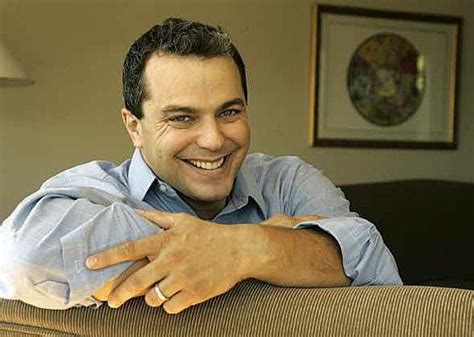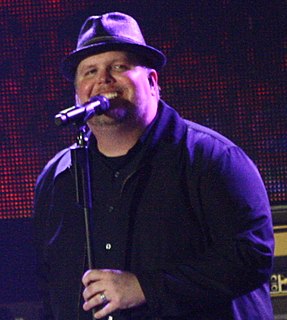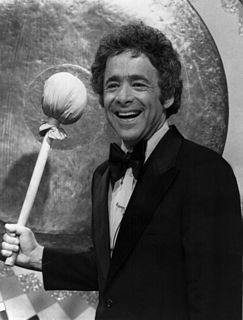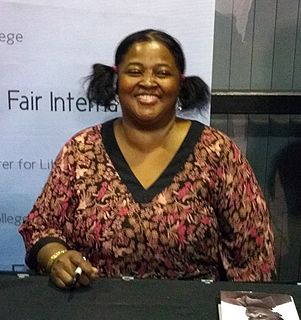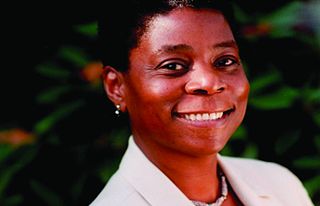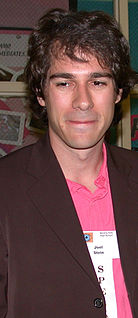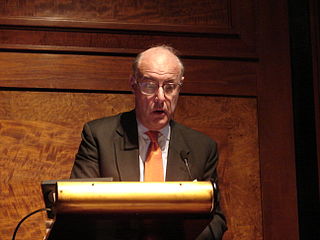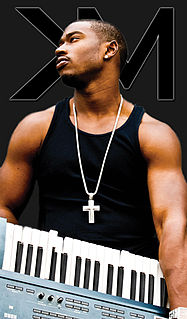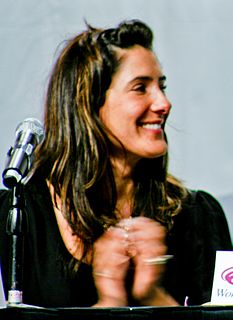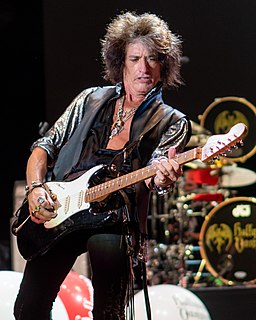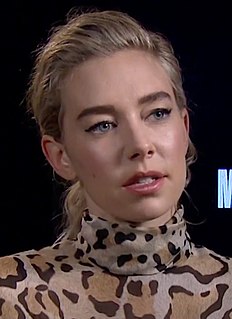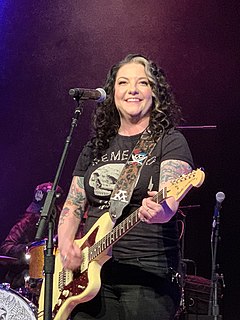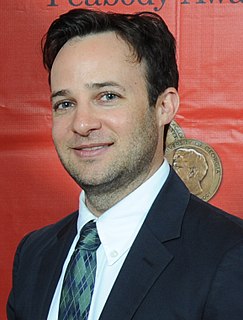Top 1200 Wrote Quotes & Sayings - Page 6
Explore popular Wrote quotes.
Last updated on December 25, 2024.
My recurring nightmare is that someday I will be faced with a panel: Franklin Roosevelt, John Kennedy and Lyndon Johnson all of whom will be telling me everything I got wrong about them. I know that Johnson's out there saying, 'Why is it that what you wrote about the Kennedys is twice as long as the book you wrote about me?'
While [the Arians], like men sprung from a dunghill, truly "spoke from the earth" [Jn. 3:31], the bishops [of Nicea], not having invented their phrases for themselves, but having testimony from their fathers, wrote as they did. For ancient bishops, of the great Rome and our city [i.e., Alexandria, Egypt, where Athanasius was bishop], some 130 years ago, wrote and censured those who said that the Son was a creature and not consubstantial with the Father.
A woman journalist in England asked me why Americans usually wrote about their childhood and a past that happened only in imagination, why they never wrote about the present. This bothered me until I realized why - that a novelist wants to know how it comes out, that he can't be omnipotent writing a book about the present, particularly this one.
One day, I got so disgusted that I sat down and wrote a list called 'Justin's list of things to do before he kicks the bucket.' I wrote it for myself and shortened it to 'Justin's Bucket List.' It was there on the wall, not as a story idea but as a motivational tool for myself, which actually ended up working pretty well.
My recurring nightmare is that someday I will be faced with a panel: Franklin Roosevelt, John Kennedy and Lyndon Johnson all of whom will be telling me everything I got wrong about them. I know that Johnson's out there saying, 'Why is it that what you wrote about the Kennedys is twice as long as the book you wrote about me?
I have been told that a young would-be composer wrote to Mozart asking advice about how to compose a symphony. Mozart responded that a symphony was a complex and demanding form and it would be better to start with something simpler. The young man protested, 'But, Herr Mozart, you wrote symphonies when you were younger than I am now.' Mozart replied, 'I never asked how.
One of the purest souls ever to live on this fallen planet was Nicholas Herman, known as Brother Lawrence. He wrote very little, but what he wrote has seemed to several generations of Christians to be so rare and so beautiful as to deserve a place near the top among the world's great books of devotion. The writings of Brother Lawrence are the ultimate in simplicity; ideas woven like costly threads to make a pattern of great beauty.
I write on a computer, but I've run the complete gambit. When I was very young, I wrote with a ballpoint pen in school notebooks. Then I got pretentious and started writing with a dip pen on parchment (I wrote at least a novel-length poem that way). Moved on to a fountain pen. Then a typewriter, then an electric self-correct. Then someone gave me a word processor and I was amazed at being able to fit ten pages on one of those floppy discs.
When I was very little, say five or six, I became aware of the fact that people wrote books. Before that, I thought that God wrote books. I thought a book was a manifestation of nature, like a tree. When my mother explained it, I kept after her: What are you saying? What do you mean? I couldn't believe it. It was astonishing. It was like--here's the man who makes all the trees. Then I wanted to be a writer, because, I suppose, it seemed the closest thing to being God.
The woman who wrote the movie [Ladies And Gentlemen, The Fabulous Stains], her name is Nancy Dowd. She's a wonderful writer. She wrote Coming Home. And when I read the script, at that time, I thought, "This movie is going to do for girls what Breaking Away did for boys." I thought it was going to be huge. It was a great script.
Why is it so much easier to talk to a stranger? why do we feel we need to disconnect in order to connect? If I wrote "Dear Sofia" or "Dear Boomer" or "Dear Lily's Great-Aunt" at the top of this postcard, wouldn't that change the words that followed? Of course it would. But the question is: When I wrote "Dear Lily," was that just a version of "Dear Myself"? I know it was more than that. But it was also less than that, too
I wrote the plot [for the Persepolis ]and Vincent [Paronnaud] and I wrote and discussed the shooting of the script. Vincent then took care of the production design, the actual shooting, and what was going on within each scene. It's very difficult, though, to draw a line between who did what. Because Vincent would say something, and I would add something, and at the end you have this film, yet no clear idea of who did what.
Our whole intention was to make a record of songs that we grew up with and change them up a little bit, but we kind of stumbled on writing "Joseph's Lullaby." The irony is when I originally wrote the song, it was called "Mary's Lullaby." I wrote it from Mary's standpoint and it was in a higher key, a real falsetto, and it just wasn't right. One day, the producer's wife said, "Well, it's kind of odd that you're singing from Mary's perspective, being the guy. Why don't you do Joseph?
I put my name on that Occupy Musicians list because someone wrote to me and said, "Would you do this?" I said, "Yeah sure, I support this." What artist wouldn't support that? What's the big deal? But then people wrote to me, "Wow! You're on that list!" And I'm like, "Who isn't on that list?" That would be more shocking.
I wrote to find beauty and purpose, to know that love is possible and lasting and real, to see day lilies and swimming pools, loyalty and devotion, even though my eyes were closed, and all that surrounded me was a darkened room. I wrote because that was who I was at the core, and if I was too damaged to walk around the block, I was lucky all the same. Once I got to my desk, once I started writing, I still believed anything was possible.
I wrote poetry for seven or eight years, maybe longer, before I could say I was a poet. If people asked, I'd say I wrote poetry; I wouldn't go further. I was in my mid- to late-thirties before I felt that I was a poet, which I think meant that I had begun to embody my poems in some way. I wasn't just a writer of them. Hard to say what, as a poet, my place in the world is. Some place probably between recognition and neglect.
There's a huge amount of work on Adam and Eve, from the ancient world to the present. Saint Augustine was obsessed with them.I don't know if it helps my research, but I get a big kick out of Mark Twain, who wrote "The Diaries of Adam and Eve." He wrote very funny stuff on them. I sometimes read things that are loosely related to what I'm thinking and writing about.
I wrote 'Big Yellow Taxi' on my first trip to Hawaii. I took a taxi to the hotel and when I woke up the next morning, I threw back the curtains and saw these beautiful green mountains in the distance. Then, I looked down and there was a parking lot as far as the eye could see, and it broke my heart this blight on paradise. That's when I sat down and wrote the song.
I went out and started on my way up in television. I wrote music, I wrote books, I played an instrument half-ass. I would always have liked to play in a band. I would always have liked to be a substantial writer, to write country music for big singers. I had all sorts of proclivities, but I never had any big success.
When we decided to marry, we had two ceremonies - one was more bureaucratic for the sake of the Swiss authorities,then a church service in Florence, and I wrote the music for the church service. The challenge in that was that Iman's [Abdulmajid] family are Muslim and mine are Protestant. I had to be careful about the prayers that we chose and the music I wrote because I didn't want to offend either side.
I wrote before I could write. I got my hands on a journal, maybe a hand-me-down; I had three older siblings. My first entries are in the handwriting of the sister closets in age (5 years my senior). She must have gotten tired of my dictations because she gave up and then my blocky scrawl shows up. I wrote plays as a kid mostly.
You have to resign yourself to the fact that you waste a lot of trees before you write anything you really like, and that's just the way it is. It's like learning an instrument, you've got to be prepared for hitting wrong notes occasionally, or quite a lot, cause I wrote an awful lot before I wrote anything I was really happy with. And read a lot. Reading really helps. Read anything you can get your hands on.
The single greatest line I ever wrote as an analyst was after Lomas said they were hedged: 'The Lomas Financial Corporation is a perfectly hedged financial institution: it loses money in every conceivable interest rate environment.' I enjoyed writing that sentence more than any sentence I ever wrote.
Long time ago, people would make the Bible, right? The guy said it, somebody wrote it down. And then if you wanted another copy of it, another human being wrote another one. It took a long, long time. Somebody created this thing called mimeograph paper and so you said, 'OK, we'll do it that way.' And so you could get three of them.
People would say, "Well yeah, if I wrote action films, if I wrote the trash that you write, I could make millions too. But I want to write my real movie about these Guatemalan immigrants, and how they hid under a truck for 300 miles." And that's fine. I'd love to make that film too, but to dismiss everything I did just because it's action seems wrong.
I wanted to make a movie once at Lake of the Woods, where my parents had a cabin, which I now have. We actually planned, we wrote a whole screenplay about a kind of Indian spiritual group that was at Lake of the Woods. We weren't calling it that but it was Lake of the Woods. We wrote a whole screenplay about it but we couldn't get funding for it.
That's one of those questions that would just love to have a pat answer. You know, poetry's job is to make us feel good. Poetry exists to allow us to express our innermost feelings. There isn't one role for poetry in society. There are many roles for poetry. I wrote a poem to seduce my wife. I wrote a poem when I asked her to marry me. Poetry got me laid. Poetry got me married.
When I get real big volumes of hate mail, it's usually because I wrote something poorly. But it's also because some group told people to e-mail me and those people didn't read the article, they read the post about what I wrote about. And they all e-mail me. And they all come around at the same time.
The challenge in writing the songs for The Aristocats truly fell on the animators & director of the film. Robert & I wrote the initial songs for the film, just prior to leaving full-time employment at the Walt Disney Studios. Therefore, some of the songs we wrote for The Aristocats were never used. I believe, therefore, the challenge fell upon the makers of the film to select what songs made the final cut.
In the early 21st century, it is easy to condemn the Bond books for being racist and imperialist, sexist and misogynist, elitist and sadistic. But this is merely another way of saying that we cannot understand the Bond books without reference to the personality, the outlook and the 'Tory imagination' of the man who wrote them, and to the time in which he wrote them; and that we cannot understand the 1950s and 1960s without some reference to them, and to him.
I think my first hit was the first song I ever wrote. I actually wrote it in 2005 in college. The title of it is called "Ain't Ready”. It's just talkin about the relationship with a man and a woman, or even a woman and a woman; however you wanna look at it, and just that feeling of feeling like you're not ready for love and the other person is pushing for something that you don't want. I think that's something that a lot of people can relate to.
Girls are trained to say, ‘I wrote this, but it’s probably really stupid.’ Well, no, you wouldn’t write a novel if you thought it was really stupid. Men are much more comfortable going, ‘I wrote this book because I have a unique perspective that the world needs to hear.’ Girls are taught from the age of seven that if you get a compliment, you don’t go, ‘Thank you’, you go, ‘No, you’re insane.
My father died of brain cancer in 1991. I do not know anyone whose life has not been touched by the loss of a loved one to cancer. I wrote my book 'Gracefully Gone' about my father's fight and my struggle growing up with an ill parent. I wrote it to help others know they are not alone in this all-too-often insurmountable war against cancer.
Write about winter in the summer. Describe Norway as Ibsen did, from a desk in Italy; describe Dublin as James Joyce did, from a desk in Paris. Willa Cather wrote her prairie novels in New York City; Mark Twain wrote Huckleberry Finn in Hartford, Connecticut. Recently, scholars learned that Walt Whitman rarely left his room.
Sometimes I'll say, "I wrote that book," and the person will look at you as if you're really strange. One time that happened to my daughter on a plane. She was sitting next to a girl who was reading one of my books and my daughter said, "My mother wrote that book." And the girl started to quiz my daughter, asking her all sorts of questions, like what are the names of Judy's children and where did she grow up. My daughter thought it was so funny.
There is an amazing feminist writer called Lindy West; she wrote a very nice piece for The New York Times. She wrote about Woody Allen, saying if we can't go after your work or your career, we will go after your legacy. You will never be remembered the same way. I think a lot of women will have to take solace in that.
In a way, you normalize your own childhood to yourself, so I never thought about how much I wrote as a kid. So I was there, confronted with it - so many notebooks, so many tiny plays. Every week we put on a play. We had a big futon, so my sister and I would use the futon as our stage, and I wrote little skits and made her faint because I found it so funny.
The Bible places supreme value in the thought life. "As a man thinketh in his heart, so is he," Solomon wrote. Jesus asserted that sin's gravity lay in the idea itself, not just the act.
"Paul admonished the church at Philippi to have the mind of Christ, and to the same people he wrote, "Whatever is true ... pure ... if there be any virtue ... think on these things." Thus, the
follower of Christ must demonstrate to the world what it is not just to think, but to think justly.
Market forces have no intrinsically moral direction, which is why, before he wrote The Wealth of Nations, Adam Smith wrote The Theory of Moral Sentiments. Ethics should precede economics. But it doesn't have to. . . . We know this because we've seen the results of capitalism without conscience: the pollution of the air we breathe, the water we drink, and the food we eat; the endangerment of workers; and the sale of dangerous products - from cars to toys to drugs. All in pursuit of ever-greater profits.
I wrote poetry in a secretive way, I think, a secret from myself, I mean. I wrote it because it gave me great pleasure to do so and because it relieved the ever-building pressure of the demanding world around me. It's always served me as a way of appraising, and controlling overwhelming experiences. But this need, and desire, was always in conflict with my need to "survive."
After he made up his mind to spend the rest of the war in the hospital, Yossarian wrote letters to everyone he knew saying that he was in the hospital but never mentioning why. One day he had a better idea. To everyone he knew he wrote that he was going on a very dangerous mission. "They asked for volunteers. It's very dangerous, but someone has to do it. I'll write you the instant I get back." And he had not written anyone since.
I did The 'Acid Test' at the Royal Court, by Anya Reiss, who's the most wonderful, amazing female writer. She was only 19 when she wrote it. She wrote it about three girls in a flat on a Friday night, and that was magic because it was so rare to have three girls in your age group in a play. It just doesn't happen.
Wormholes were first introduced to the public over a century ago in a book written by an Oxford mathematician. Perhaps realizing that adults might frown on the idea of multiply connected spaces, he wrote the book under a pseudonym and wrote it for children. His name was Charles Dodgson, his pseudonym was Lewis Carroll, and the book was Through The Looking Glass.
What I do now is all my dad's fault, because he bought me a guitar as a boy, for no apparent reason. ... I wrote some of my best love songs ever when I was unhappy and my saddest love songs when I was very much in love. When I wrote 'You're in My Heart', which is an uplifting song, I had just broken up with-Now who had I broken up with?. ... Half the battle is selling music, not singing it. It's the image, not what you sing.
I started writing when I was 26, so I don't even know what year that was. I wrote a script for me to star in. A friend of mine, who was an actor that I would compete against a lot, had written a script and was taking all these meetings. He just kept pushing me and was like, "You got to do it. You're going to love it!" He's a very successful screenwriter now. His name is Michael Bacall and he wrote 21 Jump Street, Project X, and Scott Pilgrim vs. the World. So it was a few factors.





